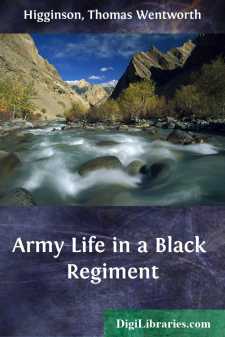Categories
- Antiques & Collectibles 13
- Architecture 36
- Art 48
- Bibles 22
- Biography & Autobiography 813
- Body, Mind & Spirit 141
- Business & Economics 28
- Children's Books 12
- Children's Fiction 9
- Computers 4
- Cooking 94
- Crafts & Hobbies 4
- Drama 346
- Education 46
- Family & Relationships 57
- Fiction 11826
- Games 19
- Gardening 17
- Health & Fitness 34
- History 1377
- House & Home 1
- Humor 147
- Juvenile Fiction 1873
- Juvenile Nonfiction 202
- Language Arts & Disciplines 88
- Law 16
- Literary Collections 686
- Literary Criticism 179
- Mathematics 13
- Medical 41
- Music 40
- Nature 179
- Non-Classifiable 1768
- Performing Arts 7
- Periodicals 1453
- Philosophy 64
- Photography 2
- Poetry 896
- Political Science 203
- Psychology 42
- Reference 154
- Religion 513
- Science 126
- Self-Help 83
- Social Science 81
- Sports & Recreation 34
- Study Aids 3
- Technology & Engineering 59
- Transportation 23
- Travel 463
- True Crime 29
Tales of the Enchanted Islands of the Atlantic
Description:
Excerpt
Preface
Hawthorne in his Wonder Book has described the beautiful Greek myths and traditions, but no one has yet made similar use of the wondrous tales that gathered for more than a thousand years about the islands of the Atlantic deep. Although they are a part of the mythical period of American history, these hazy legends were altogether disdained by the earlier historians; indeed, George Bancroft made it a matter of actual pride that the beginning of the American annals was bare and literal. But in truth no national history has been less prosaic as to its earlier traditions, because every visitor had to cross the sea to reach it, and the sea has always been, by the mystery of its horizon, the fury of its storms, and the variableness of the atmosphere above it, the foreordained land of romance.
In all ages and with all sea-going races there has always been something especially fascinating about an island amid the ocean. Its very existence has for all explorers an air of magic. An island offers to us heights rising from depths; it exhibits that which is most fixed beside that which is most changeable, the fertile beside the barren, and safety after danger. The ocean forever tends to encroach on the island, the island upon the ocean. They exist side by side, friends yet enemies. The island signifies safety in calm, and yet danger in storm; in a tempest the sailor rejoices that he is not near it; even if previously bound for it, he puts about and steers for the open sea. Often if he seeks it he cannot reach it. The present writer spent a winter on the island of Fayal, and saw in a storm a full-rigged ship drift through the harbor disabled, having lost her anchors; and it was a week before she again made the port.
There are groups of islands scattered over the tropical ocean, especially, to which might well be given Herman Melville's name, "Las Encantadas," the Enchanted Islands. These islands, usually volcanic, have no vegetation but cactuses or wiry bushes with strange names; no inhabitants but insects and reptiles—lizards, spiders, snakes,—with vast tortoises which seem of immemorial age, and are coated with seaweed and the slime of the ocean. If there are any birds, it is the strange and heavy penguin, the passing albatross, or the Mother Cary's chicken, which has been called the humming bird of ocean, and here finds a place for its young. By night these birds come for their repose; at earliest dawn they take wing and hover over the sea, leaving the isle deserted. The only busy or beautiful life which always surrounds it is that of a myriad species of fish, of all forms and shapes, and often more gorgeous than any butterflies in gold and scarlet and yellow.
Once set foot on such an island and you begin at once to understand the legends of enchantment which ages have collected around such spots. Climb to its heights, you seem at the masthead of some lonely vessel, kept forever at sea. You feel as if no one but yourself had ever landed there; and yet, perhaps, even there, looking straight downward, you see below you in some crevice of the rock a mast or spar of some wrecked vessel, encrusted with all manner of shells and uncouth vegetable growth....









